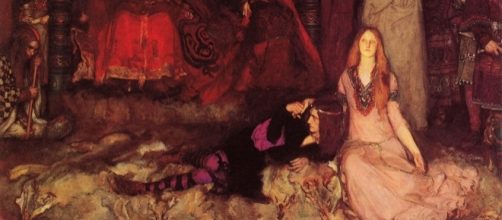For decades, William Shakespeare’s plays and sonnets have served as a fountain of inspiration for various artists and writers. According to the British Council, since 2000, there have been Shakespeare movies or TV shows made in scores of countries from France, India, Japan and Argentina to Germany, Thailand, Italy, Poland, Israel and many more. This is other than the English-speaking countries like Australia, New Zealand, Canada, the US, and the UK, of course.
What’s more, some of our favourite movies like 10 Things I Hate About You, The Lion King, and Star Wars Episode III: Revenge of the Sith wouldn’t have existed without Shakespeare’s The Taming of the Shrew, Hamlet, and Othello, respectively.
However, today, instead of focusing on the popular movie adaptations of his work, let’s take a look at some of the obscure and bizarre (yet immensely creative) Shakespearean adaptations:
1. The Beatles retelling of 'A Midsummer's Night Dream'
To celebrate Shakespeare’s 400th anniversary, The Beatles paid a tribute to the great playwright with a TV special that featured an extremely abridged version of his play A Midsummer’s Night Dream. The show was aired in April 1964, where Paul McCartney and John Lennon played the spoof version of Pyramus and Thisbe respectively. George Harrison starred as Moonshine and Ringo Starr played the role of the Lion.
“Among the wackier tributes for the last major Shakespeare anniversary is this effort from the Fabs… the show is stolen – naturally – by John, whose rasping Thisbe channels both Charlton Heston and Frankie Howerd,” noted The Guardian.
2. 'King Lear With Sheep'
First staged in a London warehouse, King Lear With Sheep. Written by Missouri Williams, the play revolves around the character of a director, played by the only human actor, who decides to cast sheep in his production of King Lear. He actually tries to herd the animals from one scene to another only to break down later as a result of the sheep’s obvious indifference. The frustrated director then begins to perform the play himself.
“I wanted to do something extreme that would challenge our ideas about both Shakespeare and the theatre as a whole,” wrote Missouri Williams in the Independent.
“King Lear with Sheep is two things: a gimmicky straightforward narrative comedy and an extended farmyard meditation regarding the nature of performance, expectations, whatever, by focusing on the actions of a human director to persuade his all-sheep cast to act,” she added.
3. Silent Shakespeare
Virginia’s Synetic Theater stages unique adaptations of Shakespearean plays using physical theatre. The production employs acrobatics, music, pantomime and dance to narrate the tale instead of dialogues and monologues. Till date, the troupe has done many wordless Shakespeare stagings from The Tempest and Macbeth to Romeo and Juliet.
“To be or not to be” was never uttered, but Hamlet stormed across the stage, gesturing to convey desperation. He and Ophelia never touched; their tortured attraction was reflected, instead, by the two actors bringing “their fingertips to within a hair’s breadth of each other,” noted The Washington Post in its 2002 review of Synetic Theater’s Hamlet”.
4. Sir Ian Mckellen’s Shakespeare Rap
In 2008, English actor Sir Ian McKellen recorded an impromptu rendition of Shakespeare’s Sonnet 18 while he was visiting a youth centre in East London. Later, McKellen’s speech was modified with electronic music and beat-boxing.
"The blending of two art forms separated by 400 years came naturally", said McKellen in a Telegraph UK report. "Shakespeare is all based on beats, rhythm and rhyme - all things that rappers deal with," he added.
5. Puppet Shakespeare
Folks at the Puppet Shakespeare Players use various creative techniques, most notably puppets, in their productions. The troupe productions include Puppet Titus Andronicus, Puppet Hamlet and Puppet Romeo and Juliet.
“These goofy, exuberant performers have a lot of fun, providing a bubbly, ribald tonic that prompts more than a few belly laughs. Even Shakespeare would smile,” noted The New York Times.


